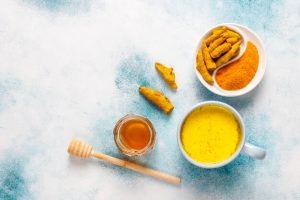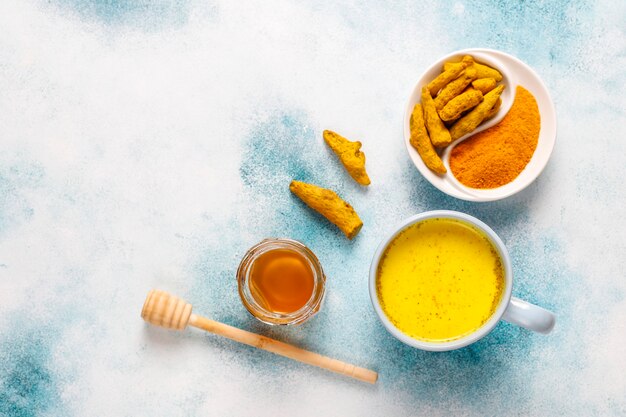In the quest for better health and overall well-being, the role of inflammation cannot be understated. While acute inflammation is a natural and necessary response of the body to injuries or infections, chronic inflammation has been linked to a wide range of health problems, including heart disease, cancer, and autoimmune disorders. Fortunately, nature has provided us with a powerful ally in the fight against inflammation – turmeric.Turmeric, known as Curcuma longa in scientific circles, is a vibrant golden spice that has a long history of use in traditional medicine, particularly in India and China. Beyond its culinary applications, turmeric has gained recognition worldwide for its extraordinary health benefits, primarily attributed to its active compound, curcumin. In this detailed article, we will delve into the world of inflammation and explore how turmeric’s anti-inflammatory properties can promote well-being.
Understanding Inflammation
Before we explore the role of turmeric in combating inflammation, let’s grasp the concept of inflammation itself. Inflammation is a complex biological response that occurs when the body’s immune system recognizes an injury or threat. It serves as a protective mechanism to remove harmful stimuli, such as pathogens or damaged cells, and initiate the healing process. Inflammation is typically divided into two types:
1. Acute Inflammation
Acute inflammation is a short-term response that occurs when you cut your finger or contract a minor infection. It’s characterized by redness, heat, swelling, and pain in the affected area. Acute inflammation is essential for the body’s defense and repair mechanisms.
2. Chronic Inflammation
Chronic inflammation, on the other hand, is a persistent and low-level inflammation that can last for weeks, months, or even years. It often goes unnoticed because it doesn’t produce the dramatic symptoms of acute inflammation. Instead, it quietly contributes to a host of health issues, including heart disease, diabetes, arthritis, and cancer.
Turmeric’s Secret Weapon: Curcumin
The star of the show in turmeric’s health benefits is curcumin. Curcumin is a polyphenol, a type of natural chemical compound found in plants, that has potent anti-inflammatory and antioxidant properties. Its bright yellow color is not only what gives turmeric its characteristic hue but is also a visual representation of its vibrant health benefits.
The Anti-Inflammatory Effects of Curcumin
1. Inhibition of Inflammatory Pathways
Curcumin’s primary mechanism of action in reducing inflammation is its ability to inhibit various molecular pathways that contribute to the inflammatory response. One of the most well-known targets is NF-kB, a molecule that plays a key role in triggering the inflammation process. By blocking NF-kB, curcumin helps reduce the expression of pro-inflammatory genes.
2. Reduction of Inflammatory Markers
Studies have shown that curcumin can significantly lower the levels of inflammatory markers in the body, such as C-reactive protein (CRP). High levels of CRP are associated with chronic inflammation and an increased risk of various diseases, making it a valuable marker of overall health.
3. Modulation of Immune Cells
Curcumin influences the behavior of immune cells involved in the inflammatory response. It can suppress the activation and migration of certain immune cells, limiting the extent of inflammation and tissue damage.
Health Benefits of Turmeric’s Anti-Inflammatory Properties
Now that we’ve explored how curcumin works to combat inflammation, let’s delve into the wide range of health benefits it offers:
1. Arthritis and Joint Pain
Arthritis is a common condition characterized by joint inflammation and pain. Studies have shown that curcumin can be as effective as some anti-inflammatory drugs in reducing symptoms of osteoarthritis and rheumatoid arthritis. It may help alleviate pain and improve joint function.
2. Heart Health
Chronic inflammation is a significant contributor to heart disease. Curcumin’s anti-inflammatory and antioxidant properties can help protect the cardiovascular system. It may improve the function of the endothelium, the lining of blood vessels, and reduce risk factors like high blood pressure.

3. Brain Health
Curcumin has shown promise in supporting cognitive function and potentially reducing the risk of neurodegenerative diseases like Alzheimer’s. It can cross the blood-brain barrier, providing anti-inflammatory and antioxidant effects in the brain.
4. Digestive Wellness
In traditional medicine, turmeric has been used to aid digestion. Its anti-inflammatory properties can soothe the digestive tract, making it helpful for conditions like irritable bowel syndrome (IBS).
5. Potential Cancer Prevention
Emerging research suggests that curcumin may have anticancer properties. It can inhibit the growth of cancer cells and help prevent the spread of tumors. While more research is needed, the potential is promising.
6. Skin Health
Curcumin’s anti-inflammatory and antioxidant properties may benefit the skin. It can help with conditions like psoriasis and acne, reducing redness and promoting a healthy complexion.
7. Anti-Aging
Oxidative stress and inflammation are major contributors to the aging process. Curcumin’s antioxidant properties can help combat these factors, potentially slowing down the aging of cells and tissues.
Incorporating Turmeric into Your Lifestyle
To harness the anti-inflammatory benefits of turmeric, consider the following:
1. Turmeric Supplements
Turmeric supplements containing curcumin are widely available. Be sure to choose a high-quality product with standardized curcumin content for best results.
2. Turmeric in Cooking
Add turmeric to your cooking, whether in curries, soups, or as a seasoning for roasted vegetables. Combining turmeric with black pepper can enhance its absorption.
3. Turmeric Tea
Turmeric tea is a soothing and flavorful way to enjoy the spice’s benefits. You can make it by steeping grated fresh turmeric or turmeric powder in hot water.
4. Turmeric Face Masks
For skin health, consider using turmeric in DIY face masks or skincare products. Ensure you perform a patch test to avoid skin irritation.

Conclusion
Turmeric, with its active compound curcumin, is a remarkable natural remedy for combatting inflammation and promoting overall well-being. Its anti-inflammatory and antioxidant properties make it a valuable addition to a balanced and healthy lifestyle. While it’s not a magical cure-all, the extensive history of turmeric in traditional medicine, combined with modern scientific research, highlights its potential as a versatile health aid. As with any dietary or health-related changes, consult with a healthcare professional to ensure it aligns with your individual needs. By incorporating turmeric into your daily routine, you can embrace the golden spice’s power to fight inflammation and contribute to a healthier, more vibrant life.




